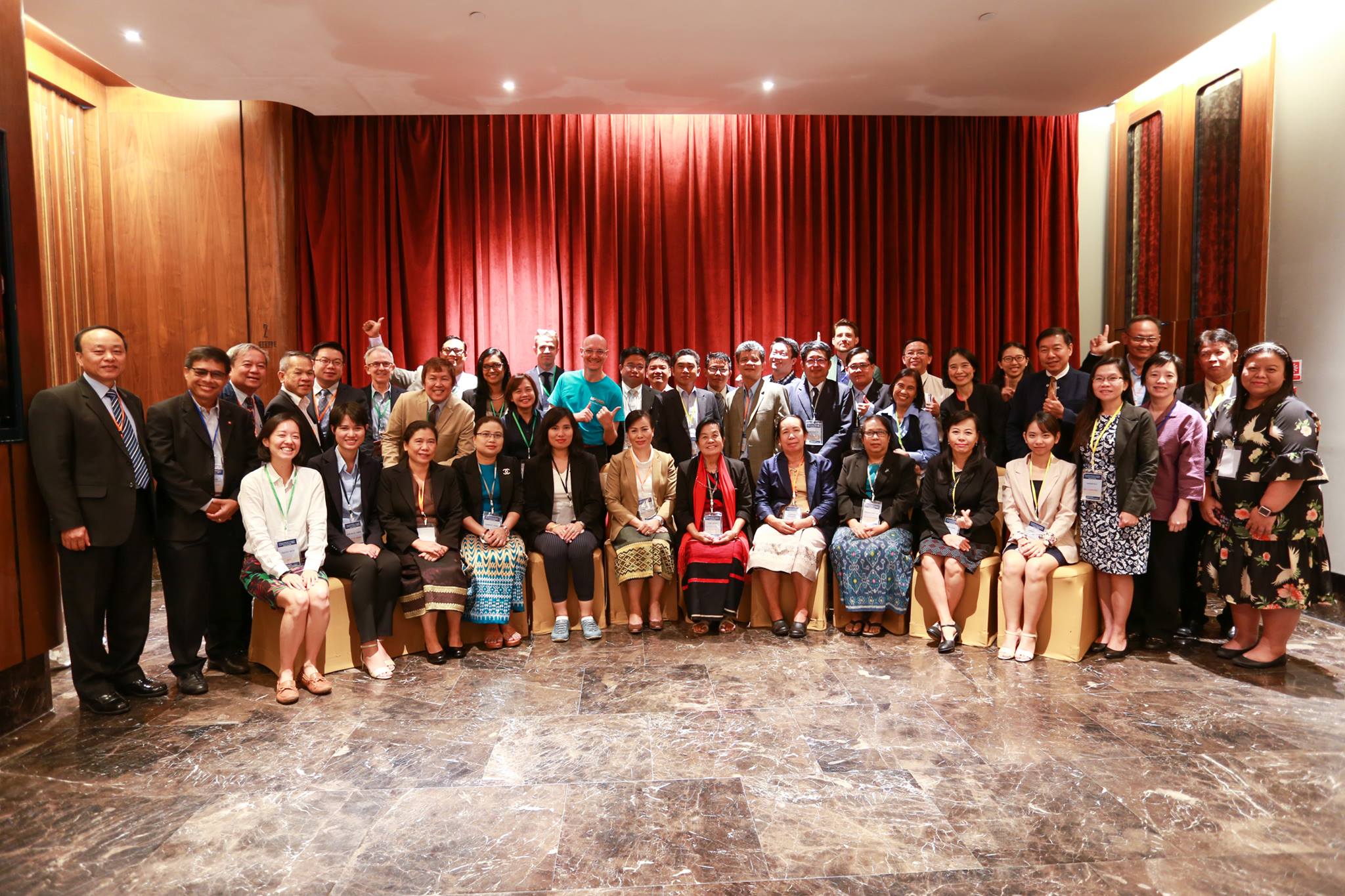Roundtable Discussion on Regional Investment Framework for Migrant Health in the Greater Mekong Subregion
Event

Roundtable Discussion on Regional Investment Framework for Migrant Health in the Greater Mekong Subregion
The Asian Development Bank organized the Roundtable Discussion on Regional Investment Framework for Migrant Health in the Greater Mekong Subregion on 5 November 2018 in Bangkok. The roundtable discussion focused on defining an operational regional investment framework and available financing solutions to innovatively address migrant health care challenges and support national and regional universal health coverage. This was a follow-up on the previous Roundtable Discussion on Financing Health Care Access for Migrants in the GMS held in Bangkok on 15 August 2018.
The participants of this roundtable discussion were government officials from the Ministry of Finance, Ministry of Health, and Ministry of Labor of Cambodia, Lao PDR, Myanmar, and Thailand; representatives of development partners and civil society organizations; and ADB staff and consultants.
The ADB convened in Bangkok, Thailand, on 15 August 2018 (Roundtable 1) and tabled the concept of a regional migrant health care project. Based on government feedback, it was agreed to follow up on financing solutions to innovatively address migrant health care challenges to support national and regional universal health coverage. Underpinning these issues, is a requirement to strengthen the supply and demand of health care services and access for migrants. In doing so, border connectivity, economic outputs and cross border health will also be strengthened.
The key issues noted from Round table 1 were: (1) documenting the “undocumented” including data, monitoring and evaluation challenges (2) health service delivery that is culturally sensitive; and (3) effective policies and regulations to support regional harmonization of migrant health. Roundtable 1 concluded with the green light for ADB to explore the design of a regional migrant financing mechanism to increase uptake of health services, strengthen health supply, increase border economic development and integrate health-based border connectivity. The conclusions of Roundtable 1 align with the 2007 ASEAN Declaration on the Protection and Promotion of the Rights of Migrant Workers (the “Cebu Declaration"). In 2017, ASEAN leaders again signed and re-affirmed their commitment for migrant worker protection and support, through the ASEAN Consensus on the Protection and Promotion of the Rights of Migrant Workers.
Labour migration in the Mekong subregion presents a large challenge, particularly for migrant-receiving countries such as Thailand. There are three key aspects to the problem statement:
-
Migrant numbers are growing: there are many undocumented workers crossing borders with Thailand receiving a lions-share of migrant workers. Proposed ASEAN economic belts and integration will increase connectivity placing additional pressure on currently underdeveloped health care systems. Furthermore, there is a need to conduct analysis to assess the actual migrant numbers including their contribution to economy and their impact on health systems.
-
Migrant contribution to border economy is significant: Migrant labour contributed an estimated 6.2% of US$189.3 billion Thai GDP in 2005 alone; with forecasts growing steadily since 2006. Migrant labour constitutes 5% of total labour in Thailand, including 7-10% of the industrial sector and 4-5% of the agricultural sectors. As noted above, there is a need to fully understand the impact of migrants to border economy, including areas of strengthening to not only improve trade and connectivity, but support migrants’ access to social services and health.
-
Governments have requested support to address regional migrant health challenges: Myanmar, Laos PDR, Cambodia and Thailand have made significant commitments to invest in UHC and develop national systems. Building on this, there is an urgent need to develop a regional framework that can support both supply and demand factors of migrant health. Potential solutions may be found through the use of an innovative financing framework.
To address migrant health related challenges and scaling up investments regionally, ADB will engage with Thailand, Myanmar, Cambodia and Lao PDR.
The overarching objective of the meeting is to discuss the proposed set of interventions including a recommended financing strategy. Specific session objectives are noted in the table below:
|
Session |
Objectives |
|
Setting the Scene: Migrant Health Challenges |
Build rationale for MOH/MOF to invest in migrant health, and understand current gaps requiring ADB support |
|
The Regional Migrant Health Investment Framework: Overview of the proposal |
Present the proposed framework and financing options available |
|
The Regional Migrant Health Investment Framework: Discussion sessions on Outputs |
Facilitate detailed feedback on the proposal, develop buy-in and ownership for the proposal |
|
The way forward |
Create a skeleton work plan including timeline |
The anticipated outputs of Roundtable 2 include: (1) no objection to begin project preparation for an ADB migrant health financing package; (2) government commitment to the project either through technical assistance contribution, or through ADB-backed financing to allocate funds.
|
Time |
Facilitator/Speaker |
Topic |
|
8:45am ‒ 9:00 am |
Hung Nguyen |
|
|
9:00am ‒9:45am |
Azusa Sato & Joel Buenaventura |
|
|
9:45am ‒ 10:00am |
All |
Coffee Break |
|
10:00am ‒ 10:30am |
Saumya Kailasapathy |
|
|
10:30am ‒ 12:30pm |
All |
|
|
12:30pm ‒ 1:30pm |
All |
Lunch |
|
1:30pm ‒ 2:00pm |
Azusa Sato & Saumya Kailasapathy |
Carousel feedback |
|
2:00pm ‒ 2:45pm |
Government |
Government feedback discussion |
|
2:45pm ‒ 3:00pm |
All |
Coffee Break |
|
3:00pm ‒ 3:30pm |
Azusa Sato |
|
|
3:30pm |
Hung Nguyen |
Meeting close |
| Attachment | Size |
|---|---|
| 40.76 KB |
Last Updated: 30 January 2020
